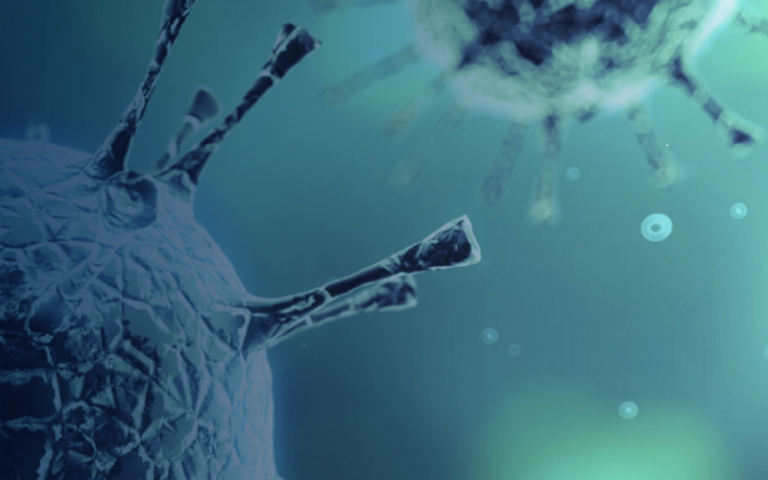Cell-based immune therapy to herald revolution in cancer treatment
Trials are underway for an innovative cell-based immune therapy first developed at UCL, which could help treat cancers particularly when chemotherapy and radiotherapy have failed.

12 April 2022
Around 40,000 people are diagnosed with blood cancer every year in the UK. The largest proportion of blood cancers arise from B-lymphocytes, a type of blood cell which normally make antibodies to repel invading organisms.
T-cells, another type of lymphocyte, circulate in the blood where they search for and kill infected cells. They can move to sites of disease, copying themselves, and survive for extended periods providing long-lasting protection. This makes them well-equipped to eradicate cancers but, because cancers are derived from normal tissues, they are recognised as ‘foreign’ by too few T-cells for the body to heal itself.
Reprogramming cells to attack tumours
Researchers have long known that T-cells can be genetically engineered to recognise cancers, and in theory could be taken from a patient’s blood, ‘reprogrammed’ to target a specific protein (antigen) on the target cancer cells, and then returned to the patient to attack tumours. These genetically engineered T-cells are called chimeric antigen receptor T-cells (CAR-T cells).
Funded by the UCLH BRC, Dr Martin Pule (UCL Cancer Institute) has developed CAR-T cells that have been specifically used to treat patients with B-lymphoid cancers. CAR T-cells can be effective/curative when chemotherapy and radiotherapy have failed, and Dr Pule has developed strategies to both increase the efficacy of CAR-T cells and minimise toxicity allowing the treatment to be given to a wider range of people.
Investment in transformative therapies
Following clinical trials in which UCLH was the lead site, in 2014 Dr Pule established Autolus, a spin-out company to develop this technology. Autolus obtained £30 million investment from Syncona LLP, an investment company, in part because of UCL and UCLH’s ongoing commitment to developing Dr Pule’s work.
Autolus is currently focusing on the treatment of acute lymphoblastic leukemia (ALL) in adults, and in November 2019, the AUTO1 therapy was granted special rare disease treatment status by the US Food and Drug Administration for the treatment of patients with ALL. There are also ongoing trials in children (ALL and neuroblastoma) and in adults with lymphoma. The trial pipeline includes the treatment of lung and prostate cancer and is being further extended by Pule’s academic group at UCL.
Research synopsis
Creation and successful launch of Autolus Ltd: developing and marketing CAR T-cell therapies
Research at UCL’s Cancer Institute has developed CAR T-cell therapy– a personalised approach to eradicate cancer cells in patients with lymphoid cancers. In clinical studies, CAR T-cell therapy has been used successfully to treat over 80 patients to date. In 2014, Dr Pule and UCL colleagues founded a spin-out company - Autolus Ltd, to develop the technology, which was listed on NASDAQ in 2018. With a global HQ in London, Autolus now employs over 400 people and has raised investment of more than USD500,000,000. The company is celebrated by government as a biotech exemplar and is highlighted in the UK’s 2017 and 2018 Industrial Strategy Life Sciences Sector Deals.
Links
- Dr Martin Pule’s academic profile
- UCL Cancer Institute
- UCL Faculty of Medical Sciences
- UCL Faculty of Medical Sciences REF 2021
Image
- Image credit: Pule - Virus: Autolus Therapeutics
 Close
Close

